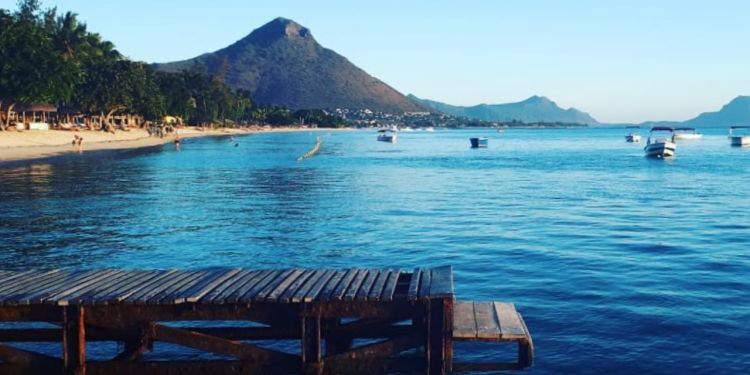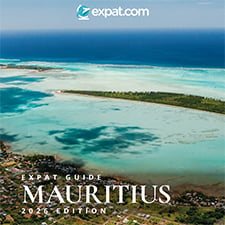How has COVID-19 changed life in Mauritius?

Mauritius started quarantining all passengers arriving from China on January 21 2020 - a week before the World Health Organization declared COVID-19 as an international public health emergency. It became apparent that it was vital for the small yet densely populated country to control the entry of international travellers amid such a health crisis. Hence, Mauritius immediately introduced temperature checks and mandatory quarantines for visitors from high-risk countries. The first three cases in Mauritius were recorded on March 18 2020, and the following day, borders closed. On March 24 2020, Mauritius announced a complete lockdown. Citizens could only leave their homes in an emergency and shopping was managed in alphabetical order by surname. Work was conducted from home unless employees held a work access permit issued by the police. These measures, which were not applauded by everyone, have echoed Mauritius' description as an open and COVID-19-safe country.
Generalities
How does Mauritius cope with the pandemic to date?
At the onset of the pandemic, WHO identified Mauritius as one of the 13 African countries at high risk due to the large number of international travellers, expats, and diaspora that arrive in the country annually. Also, Mauritius is densely populated, and the prevalence of diabetes (a condition linked to more severe symptoms of COVID-19) among its people is one of the highest in the world. However, thanks to swift and efficient containment measures, and the cooperation of citizens, at the time of writing Mauritius has registered 527 cases and ten deaths since March 18, 2020.
Important:
In September 2020 the World Travel and Tourism Council awarded Mauritius with the Safe Travels Stamp to praise the collaboration towards travellers' safety and the revival of the travel sector.
Formalities
Has COVID-19 led to changes in Mauritius' immigration policies?
Before travelling to Mauritius, citizens, permanent residents, leisure travellers, and expats-to-be, must hold a certificate of a negative PCR test, which was done between five and seven days before the date of boarding the last flight to Mauritius, if the trip is composed of more than one flight. In contrast to other countries, Mauritius requires the COVID-19 test from children and infants as well.
At Sir Seewoosagur Ramgoolam international airport of Mauritius, all arriving passengers will take the PCR test. In addition, they must present a booking at one of the few designated hotels where they will spend the mandatory 14-day quarantine and two forms: the Passenger Self Declaration Form with information about their health status and COVID-19 medical history, and the Passenger Locator Form to help public health officers inform them in case of suspected exposure to COVID-19.
Two more tests will follow; one test on the seventh day succeeding the arrival and one on the 14th day. Non-Mauritians have to pay a sum of Rs 13,500 per person to the hotel to cover costs borne by the Ministry of Health, including the three tests. If any of these tests are positive, the individual will be transferred to a designated hospital for treatment.
Useful links:
Passenger Self Declaration Form
What changes have occurred in the issue of permits for expats?
The pandemic has led to significant changes regarding the issue of permits for non-citizens. From now on, the Work Permit and Residence Permit are combined into one permit. Also, the validity of the Occupation Permit (OP) and the retiree Residence Permit has been extended from three years to ten upon renewal. As of now, the spouse of an OP holder does not need a permit to invest or work in Mauritius, and the parents of OP holders can live in Mauritius as dependents. Occupation Permit and Residence Permit holders are eligible to apply for a Permanent Residence Permit (which has been extended from ten to 20 years) after three consecutive years.
Regarding the amounts and salaries required to obtain a permit, the minimum investment sum for an Occupation Permit has been reduced to USD 50,000 (from USD 100,000). Also, the minimum monthly salary to obtain an Occupation Permit has been reduced to USD 30,000 (from 60,000). Here, we should mention that for employees of IT companies, the minimum amount was USD 30,000 even before COVID-19. The investment amount required to become a Permanent Resident has been reduced to USD 375,000 from USD 500,000. Expats who have a Residence Permit through one of the real estate schemes, do not require an Occupation or Work Permit to invest or work in Mauritius.
Important:
To learn more about the difference between a Work and an Occupation Permit in Mauritius, read the reply of Expat.com's CEO in the Mauritius Forum.
Visas
What is the Premium Travel Visa?
To attract long-stay visitors, the government of Mauritius has launched the Premium Travel Visa, giving individuals the opportunity to relocate to COVID-19-safe Mauritius. The Premium Travel Visa is an excellent option for professionals who can work remotely and wish to settle in heavenly Mauritius for a maximum of one year, while their home country is undergoing strict COVID-19 restrictions or even lockdown. The visa is renewable, and applicants must produce valid health insurance and proof of income outside Mauritius.
Attention:
Premium Travel Visa holders do not have the right to enter the Mauritian labour market. All work and businesses must be remote, and the income must arrive from outside Mauritius.
Work
What is the impact of COVID-19 on the Mauritian labour market?
According to Statistics Mauritius, employment in Mauritius is gradually bouncing back to the pre-pandemic level. However, employees, especially those who are self-employed, report less working hours and income losses. To battle the economic repercussions of the pandemic, the government of Mauritius introduced the Wage Assistance Scheme (WAS) to ensure that Mauritian and expat private sector employees would be duly paid their salaries between March and December 2020. Similarly, the Self-Employed Assistance Scheme (SEAS) supported those selling goods and tourism-related services through December 2020.
Study
Are schools open in Mauritius, and how do they operate?
All schools in Mauritius (pre-primary, primary, and secondary) resumed face to face classes on July 1, 2020. At the time of writing, following a break, students are back to school since January 7, 2021, for the third term, which will end on March 26, 2021. Due to the lockdown between March and June, the school year has been adjusted accordingly. In fact, the second term started straight after the cease of the lockdown on July 1, 2020, and ended on December 16, 2020. Usually, the second term is from April to July, and the third term ends at the beginning of November.
Assessments and examinations have also been rescheduled. The National Certificate of Education Assessment for Grade 9 will be held in April 2021, and the Cambridge SC/HSC examinations will be held between April and June 2021.
Classroom learning does mean mandatory face masks for everyone and contactless temperature checks at school entrances every morning. Each school must follow WHO's and the government's health and safety measures such as regular disinfection of classrooms and high-touch surfaces.
Are universities open for in-person learning during the pandemic?
Universities have reopened for study in Mauritius. However, each institution follows different learning methods depending on the students' needs and the subjects of study. For example, during the semester between October 2020 and December 2020, the University Technology Mauritius (UTM) followed a blended learning approach with seven on-campus face-to-face sessions and seven online sessions.
Attention:
International students arriving in Mauritius must note the COVID-19 entry requirements, including the mandatory 14-day quarantine, and are highly advised to consult with their study programme office before they begin to plan their arrival in the country.
Accommodation
What is the picture of the Mauritian real estate market throughout COVID-19?
During the lockdown, between March and June 2020, buying a property in Mauritius or renting wasn't a priority either for Mauritian citizens or expats. Purchase and rental requests have felt significantly due to COVID-19, and many sellers have chosen to pause property sales until the situation stabilises globally. Despite difficulties, the real estate pricing hasn't been impacted heavily thanks to the government's support measures such as lower loan interest rates. Overall, the Mauritian real estate is a major investment sector, which isn't as fragile as other investment types. Thus, serious investors may see the current crisis as an opportunity and be more attracted to buy a property in Mauritius than discouraged.
Important:
Until June 30, 2022, expats who hold a Residence Permit, an Occupation Permit, or a Permanent Residence Permit can acquire Smart City land of a maximum 2,100 square metres for construction of a residence.
What changes have occurred to the rental law?
Article 30 of the COVID-19 law revises the relationship between landlord and tenant. According to the COVID-19 amendments, tenants of professional, commercial, and residential premises are granted a six-month moratorium on rent payments. The revised law aims to help those who weren't able to meet their rental payment duties between March 2020 and August 2020. They can now agree with their landlord and pay the owed money in instalments until December 2021. Thus, property owners cannot proceed with eviction orders or violate the rental contract due to unpaid rents during the lockdown.
Bank
How does the Bank of Mauritius commit to supporting its clients during the pandemic?
As from March 2020, the Bank of Mauritius has launched measures to support households, individuals, and small and medium-sized enterprises that have been impacted by COVID-19. The moratorium on home, education, and personal loans has been extended to June 30, 2021, to protect those facing financial constraints due to the pandemic. During this period, the equated monthly instalment (EMI) that borrowers pay monthly under regular circumstances will not be required by the lender. The Special Relief Amount of Rs 5 billion will be available to impacted businesses that struggle to meet cash flow requirements until June 30, 2021. Mauritius' economic situation is closely monitored by the Bank of Mauritius in consultation with the Mauritius Bankers Association Limited, and aid measures will be re-evaluated on a regular basis this year.
Important:
To support its clients through this unprecedented time, the Bank of Mauritius has opened a COVID-19 email: [email protected]
Tax
What measures has announced the Mauritius Revenue Authority?
The tax system in Mauritius adheres to international standards, and during the pandemic, the Mauritius Revenue Authority has introduced rescue measures similar to other countries. The MRA will charge no penalty or interest to those submitting late returns or tax payments that were due during the lockdown. Also, businesses affected by COVID-19 will be entitled to double tax deduction for machinery and plant investments made between March and June 2020. Individuals and companies that donated to COVID-19 Solidarity Fund are eligible to claim a deduction for that amount when filing their tax returns for the income year concerned.
Important:
Taxpayers who can afford to submit their tax returns are encouraged to do so via MRA's e-Services.
Attention:
For questions regarding your tax, email [email protected] or call on 207 6000.
Healthcare
How is the government maintaining and improving the health and safety of the population?
The Canada Fund for Local Initiatives (CFLI) and the European Civil Protection and Humanitarian Aid Operations (ECHO) with the World Health Organisation (WHO) brought to Mauritius the Training of Trainers on Infection Prevention and Control (IPC) and Case Management. The sessions, which took place in October 2020, aimed to strengthen the capacity of COVID-19 front line health workers, as well as infection protection and control preventive measures to stop the spread of COVID-19 across local communities, education, and healthcare institutions.
How do health services operate amid COVID-19?
Mauritius citizens and expats don't have to worry about exposure to major health risks common in other African countries. At the same time, the health system is efficient and fully functional, even during the pandemic. Public health chiefs and emergency teams have been allocated regionally to transfer COVID-19 patients or suspect cases to quarantine and treatment facilities. In parallel, a contact tracing team identifies and informs individuals who may have been exposed to the virus through direct or indirect contact with suspected cases. Besides, home care teams conduct home visits for consultations and primary treatment to encourage physical distancing among vulnerable groups.
Important:
A 24/7 COVID-19 hotline is available by dialling 8924 in case infection is suspected.
Can you travel to Mauritius as a medical tourist?
You can only if you are able to meet the 14-day quarantine requirements and undergo four PCR tests (one in the country of departure and three in Mauritius). However, experience and data show that most medical tourists do not have the time or the physical and mental capacity to quarantine for two weeks.
Who is getting tested for COVID-19 in Mauritius?
Since the outbreak, testing for COVID-19 has been a priority for Mauritius. During the first wave, all front-line health workers were tested regularly, and testing was also carried out in asymptomatic individuals. At the time of writing, Mauritius counts 527 cases, with the last case being reported on December 23 2020. People with COVID-19 symptoms and people with a medical history of cardiovascular disease, hypertension, diabetes, and lung disease will be tested in one of the COVID-19 centres (Wellkin Hospital, the New Souillac Hospital, the ENT hospital in Vacoas, and the Victoria Hospital in Quatre Bornes).
Driver's licence
Can you obtain a driver's licence in Mauritius now?
Yes, the formalities and conditions for obtaining a driver's licence in Mauritius have not been affected by COVID-19.
Communications
How do Mauritius' telecom companies respond to the surge in demand for their services during the COVID-19 pandemic?
Mauritius Telecom has developed a mobile application to provide real-time health and safety information from the Ministry of Health and Wellness. The app sends breaking news and emergency alerts, features videos with tips on how to stay healthy, and has a directory of health centres and hotline numbers.
Useful link:
Leisure
Are shops, bars, and restaurants open in Mauritius during the pandemic?
Yes, bakeries, supermarkets, street markets, shops, malls, bars, cafés, and restaurants are open following strict sanitary regulations. Dining indoors is also permitted. Mauritius' leisure activities are mostly related with the sea, the beach, and outdoors activities. Beaches, fairs, casinos, gyms, and cinemas are open.
Transport
Is travel within Mauritius permitted?
Yes. At the time of writing, intercity and local travel are not restricted in Mauritius.
How does the transportation system operate during the pandemic?
Public transportation in Mauritius is operating, but masks are required in public transport and at designated stops.
Buses operate between 5 AM and 9 PM and the Metro Express between 6 AM and 7 PM on weekdays and up to 10 PM from Friday to Sunday.
Useful link:
Removal
Can pets travel to Mauritius during COVID-19?
Air Mauritius allows the transportation of pets in Cargo for pets that travel alone and as checked luggage for pets accompanied by a passenger. Prior to travel, pets must be in good health, have vaccination certificates, and an import permit to enter Mauritius.










